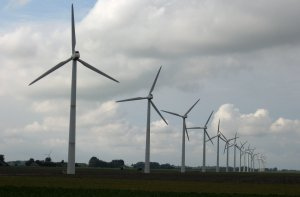Local projects the way forward in achieving a low-carbon economy, says coalition
A coalition of groups, representing some 12 million people in the UK, claims that the best way of converting the nation to a low-carbon economy is through the backing of community-owned green energy projects.


A coalition of groups, representing some 12 million people in the UK, claims that the best way of converting the nation to a low-carbon economy is through the backing of community-owned green energy projects.
However, the civil society groups also note how they have grown increasingly concerned by the lack of support being provided to local communities from the government in the implementation of such schemes.
By providing local people with the opportunity to claim their own stake in energy generation, it can help to overcome the often difficult process of obtaining planning permission for wind turbines and solar farms. Since the scheme started there has been a steady queue of willing communities looking to seize the unique opportunity of creating their own power. The groups claim though that the initiative has been slow moving, resulting in dozens of communities missing out on the chance to provide their own power through low-carbon and low-cost energy projects, whilst at the same time resulting in the loss of vital government subsidies. 
Key members and representatives of the civil society groups, which includes leading NGO’s the Co-operative, the National Trust, and the Church of England, are scheduled to put forward their case to the UK’s Energy and Climate Change Secretary, Chris Huhne.
Last year, the initiative received a major setback after the government announced that it was to cut the amount of subsidies granted to small-scale solar projects. This was despite pre-election promises by the government that it would encourage and support community-led renewable energy projects as much as possible.
“Many other European countries are way ahead of the UK, as we found out when visiting German communities last year. Germany produces over 20 percent of its electricity from renewable sources, with communities generating about a quarter of this. In the UK, less than 1 percent is generated by our communities, a figure this [civil society] coalition wants to dramatically increase by 2020. We are asking the government to support us in this,” said the Director of Rural Enterprise at the National Trust, Patrick Begg.
 The coalition’s call follows the news that the Co-operative is set to launch its ‘community energy challenge’ competition, where the group will provide six communities with a share of £1 million to set up their own ‘clean energy’ projects. “We want nothing less than a clean energy revolution, with communities controlling and benefiting from their own renewable energy,” explained the head of social goals at the Co-operative, Paul Monaghan. “Talk of a new dash for [shale] gas, which could see up to 3,000 wells installed across the UK, highlights the choices we face – more and dirtier sources of fossil fuels or clean energy owned and controlled by communities.”
The coalition’s call follows the news that the Co-operative is set to launch its ‘community energy challenge’ competition, where the group will provide six communities with a share of £1 million to set up their own ‘clean energy’ projects. “We want nothing less than a clean energy revolution, with communities controlling and benefiting from their own renewable energy,” explained the head of social goals at the Co-operative, Paul Monaghan. “Talk of a new dash for [shale] gas, which could see up to 3,000 wells installed across the UK, highlights the choices we face – more and dirtier sources of fossil fuels or clean energy owned and controlled by communities.”
Image 01: Climate Action Stock Images
Image 02: Natasha Cloutier | Flickr
Image 03: Climate Action Stock Images



